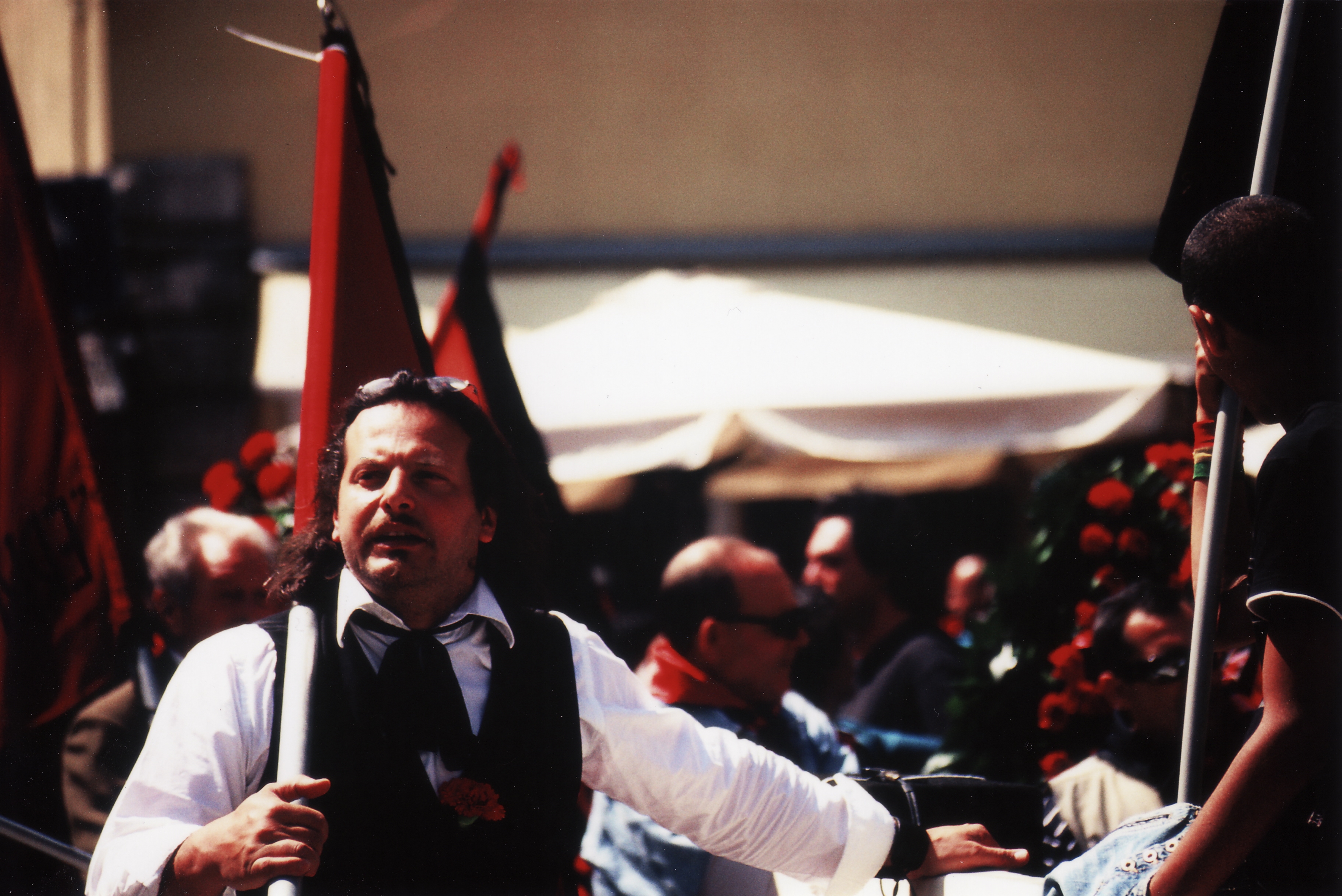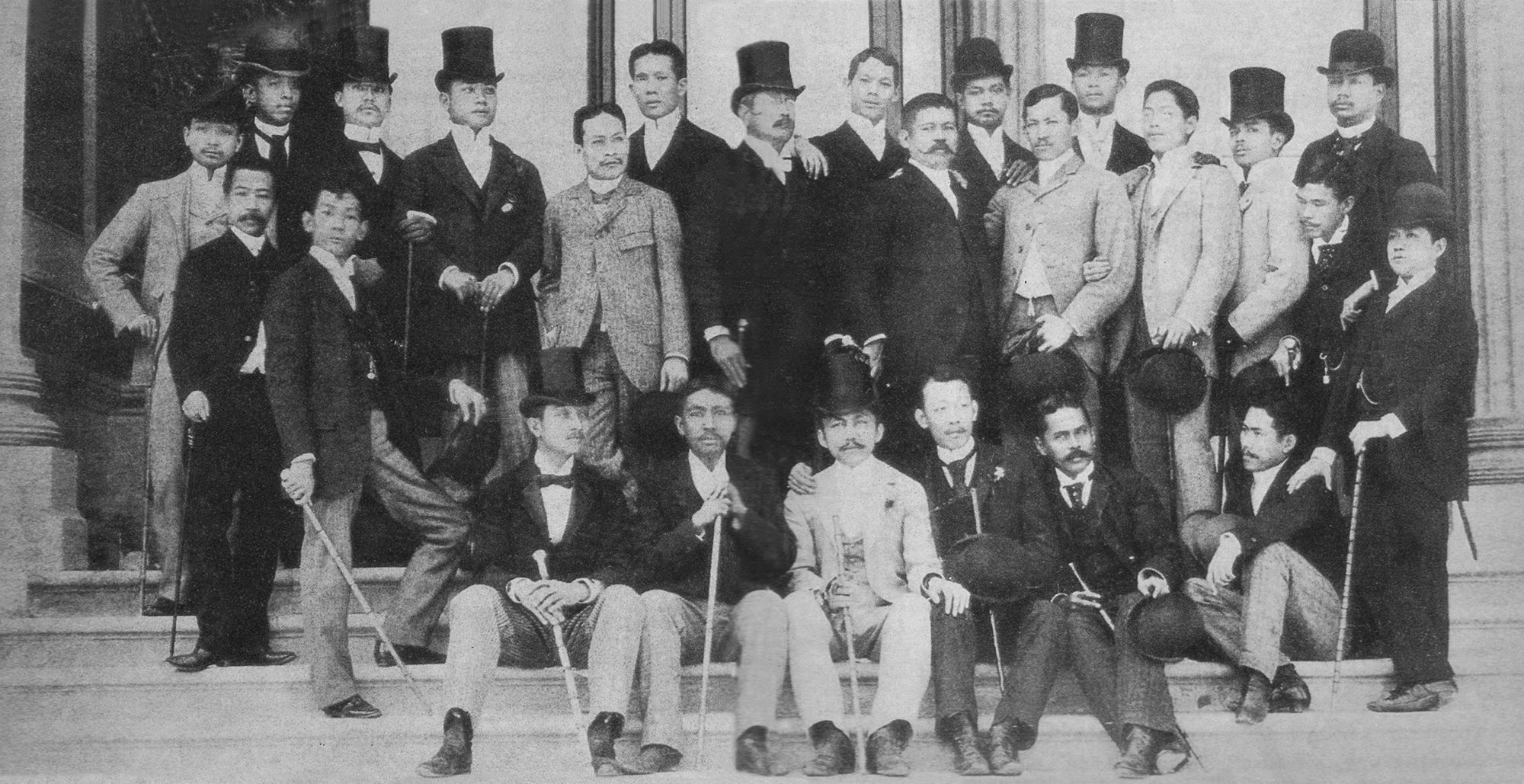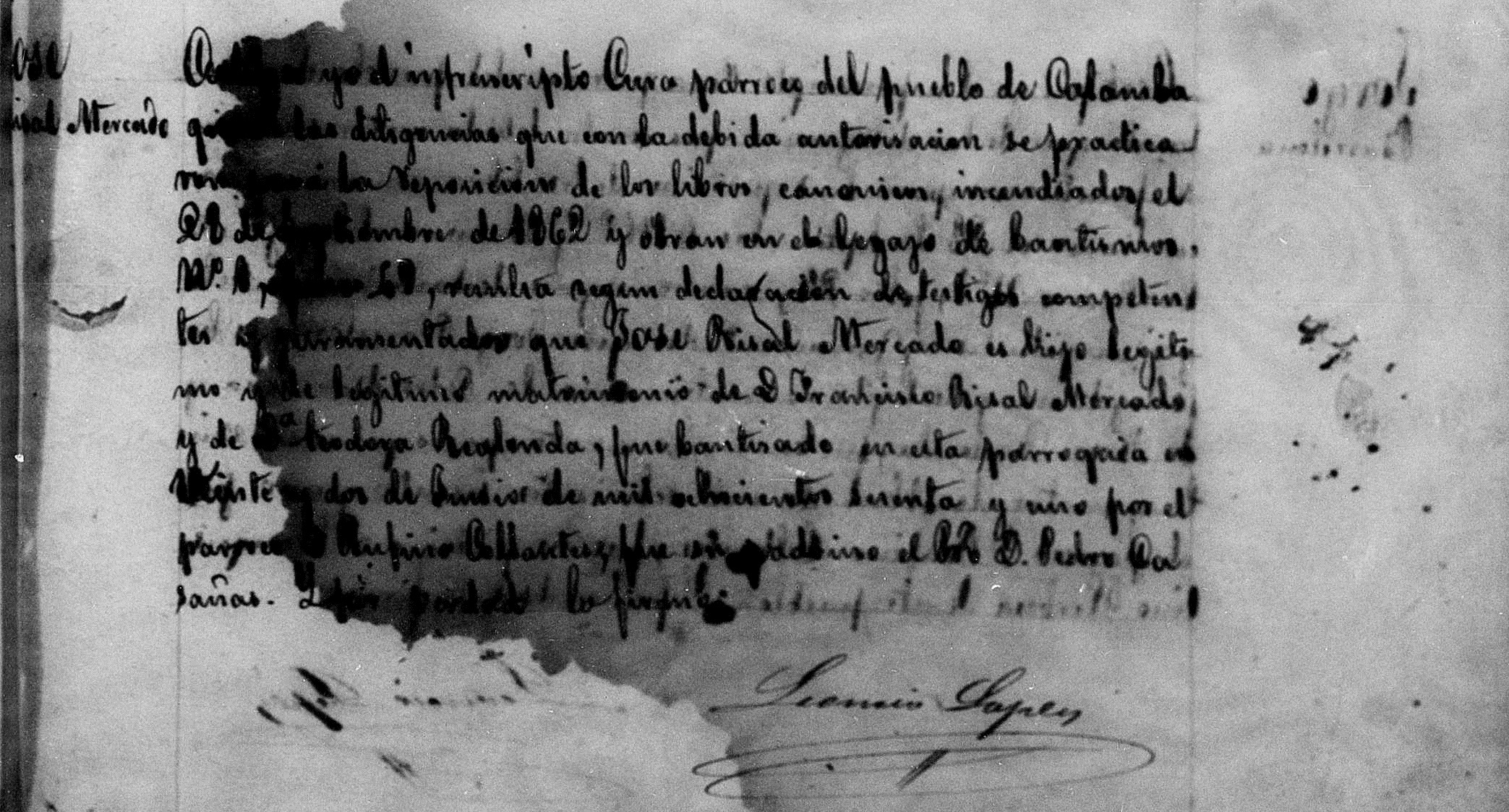|
Anarchism In The Philippines
Anarchism in the Philippines has its roots in the anti-colonial struggle against the Spanish Empire, becoming influential in the Philippine Revolution and the country's early trade unionist movement. After being supplanted by Marxism-Leninism as the leading revolutionary tendency during the mid-20th century, it experienced a resurgence as part of the punk subculture, following the fragmentation of the Communist Party of the Philippines. History The roots of anarchism in the Philippines lie in the numerous Philippine revolts against Spain during the Spanish Colonial Period. One of the earliest signs of resistance was the Battle of Mactan, in which native warriors led by Lapulapu overpowered and defeated the forces of the Spanish Empire, resulting in the death of Ferdinand Magellan. A commonly cited revolt is the uprising led by Tamblot in 1621, during which 2000 indigenous rebels burnt down the Christian churches and monuments throughout the island of Bohol. This uprising sp ... [...More Info...] [...Related Items...] OR: [Wikipedia] [Google] [Baidu] |
Spanish Empire
The Spanish Empire ( es, link=no, Imperio español), also known as the Hispanic Monarchy ( es, link=no, Monarquía Hispánica) or the Catholic Monarchy ( es, link=no, Monarquía Católica) was a colonial empire governed by Spain and its predecessor states between 1492 and 1976. One of the largest empires in history, it was, in conjunction with the Portuguese Empire, the first to usher the European Age of Discovery and achieve a global scale, controlling vast portions of the Americas, territories in Western Europe], Africa, and various islands in Spanish East Indies, Asia and Oceania. It was one of the most powerful empires of the early modern period, becoming the first empire known as "the empire on which the sun never sets", and reached its maximum extent in the 18th century. An important element in the formation of Spain's empire was the dynastic union between Isabella I of Castile and Ferdinand II of Aragon in 1469, known as the Catholic Monarchs, which in ... [...More Info...] [...Related Items...] OR: [Wikipedia] [Google] [Baidu] |
Manila
Manila ( , ; fil, Maynila, ), officially the City of Manila ( fil, Lungsod ng Maynila, ), is the capital of the Philippines, and its second-most populous city. It is highly urbanized and, as of 2019, was the world's most densely populated city proper. Manila is considered to be a global city and rated as an Alpha – City by Globalization and World Cities Research Network (GaWC). It was the first chartered city in the country, designated as such by the Philippine Commission Act 183 of July 31, 1901. It became autonomous with the passage of Republic Act No. 409, "The Revised Charter of the City of Manila", on June 18, 1949. Manila is considered to be part of the world's original set of global cities because its commercial networks were the first to extend across the Pacific Ocean and connect Asia with the Spanish Americas through the galleon trade; when this was accomplished, it marked the first time in world history that an uninterrupted chain of trade routes circling ... [...More Info...] [...Related Items...] OR: [Wikipedia] [Google] [Baidu] |
Anarchism In France
Anarchism in France can trace its roots to thinker Pierre-Joseph Proudhon, who grew up during the Restoration and was the first self-described anarchist. French anarchists fought in the Spanish Civil War as volunteers in the International Brigades. According to journalist Brian Doherty, "The number of people who subscribed to the anarchist movement's many publications was in the tens of thousands in France alone." History The origins of the modern anarchist movement lie in the events of the French Revolution, which the historian Thomas Carlyle characterized as the "open violent Rebellion, and Victory, of disimprisoned Anarchy against corrupt worn-out Authority". Immediately following the storming of the Bastille, the communes of France began to organize themselves into systems of local self-government, maintaining their independence from the State and organizing unity between communes through federalist principles. Direct democracy was implemented in the local districts o ... [...More Info...] [...Related Items...] OR: [Wikipedia] [Google] [Baidu] |
Spanish East Indies
The Spanish East Indies ( es , Indias orientales españolas ; fil, Silangang Indiyas ng Espanya) were the overseas territories of the Spanish Empire in Asia-Pacific, Asia and Oceania from 1565 to 1898, governed for the Spanish Crown from Mexico City and Madrid through the captaincy general which ruled Manila. The Monarchy of Spain, King of Spain traditionally styled himself "King of the East and West Indies (in Spanish language, Spanish: ''Rey de las Indias orientales y occidentales)''". From 1565 to 1821 these territories, together with the Spanish West Indies, were administered through the New Spain, Viceroyalty of New Spain based in Mexico City. After independence of the Declaration of Independence of the Mexican Empire, Mexican Empire, they were ruled directly from Madrid. The territories ruled included present-day Philippines, Guam and the Mariana Islands, as well as Palau, part of Micronesia and for a brief period Spanish Formosa, Northern Taiwan and parts of North Sulawesi ... [...More Info...] [...Related Items...] OR: [Wikipedia] [Google] [Baidu] |
Propaganda Movement
The Propaganda Movement encompassed the activities of a group of Filipinos who called for political reforms in their land in the late 19th century, and produced books, leaflets, and newspaper articles to educate others about their goals and issues they were trying to solve. They were active approximately from 1880 to 1898, and especially between 1880 and 1895, before the Philippine Revolution began. Prominent members included José Rizal, author of novels '' Noli Me Tángere'' and '' El filibusterismo'', and essays; Graciano López Jaena, publisher of ''La Solidaridad'', the movement's principal organ; Mariano Ponce, the organization's secretary, and Marcelo H. del Pilar. Specifically, the Propagandists aims were the following: * Reinstate the former representation of the Philippines in the Cortes Generales or Spanish Parliament * Secularize the clergy (i.e. use secular or diocesan priest rather than clergy from a religious order) * Legalize Spanish and Filipino equality * R ... [...More Info...] [...Related Items...] OR: [Wikipedia] [Google] [Baidu] |
Marcelo H
Marcelo is a given name, the Spanish and Portuguese form of Marcellus. The Italian version of the name is Marcello, differing in having an additional "l". Marcelo may refer to: * Marcelo Costa de Andrade (born 1967), Brazilian serial killer, rapist, and necrophile *Marcelinho Carioca (Marcelo Pereira Surcin born 1971 in RJ), Brazilian international midfielder in 1990s *Marcelinho Machado (born 1975), Brazilian professional basketball player *Marcelinho Paraíba (Marcelo dos Santos b. 1975 in Paraíba state), Brazilian international midfielder * Marcelinho Paulista (Marcelo José de Souza born 1973 in SP state), Brazilian youth international in 1996 Olympics * Marcelo (footballer, born January 1987), Brazilian footballer * Marcelo (footballer, born May 1987), Brazilian footballer, who played for Lyon *Marcelo (footballer, born 1988), Brazilian footballer, who played for Real Madrid *Marcelo (footballer, born 1989), Brazilian footballer, who plays for Paços Ferreira * Marcelo Arria ... [...More Info...] [...Related Items...] OR: [Wikipedia] [Google] [Baidu] |
José Rizal
José Protasio Rizal Mercado y Alonso Realonda (, ; June 19, 1861 – December 30, 1896) was a Filipino nationalist, writer and polymath active at the end of the Spanish colonial period of the Philippines. He is considered the national hero (''pambansang bayani'') of the Philippines. An ophthalmologist by profession, Rizal became a writer and a key member of the Filipino Propaganda Movement, which advocated political reforms for the colony under Spain. He was executed by the Spanish colonial government for the crime of rebellion after the Philippine Revolution broke out; it was inspired by his writings. Though he was not actively involved in its planning or conduct, he ultimately approved of its goals which eventually resulted in Philippine independence. Rizal is widely considered one of the greatest heroes of the Philippines and has been recommended to be so honored by an officially empaneled National Heroes Committee. However, no law, executive order or proclamation ... [...More Info...] [...Related Items...] OR: [Wikipedia] [Google] [Baidu] |
Glorious Revolution (Spain)
The Glorious Revolution ( es, la Gloriosa or ) took place in Spain in 1868, resulting in the deposition of Queen Isabella II. The success of the revolution marked the beginning of the with the installment of a provisional government. Background Leading up to the Glorious Revolution, there had been numerous failed attempts to overthrow the unpopular Queen Isabella, most notably in 1854 and 1861. An 1866 rebellion led by General Juan Prim and a revolt of the sergeants at San Gil barracks, in Madrid, sent a signal to Spanish liberals and republicans that there was serious unrest that could be harnessed if it were properly led. Liberals and republican exiles abroad made agreements at Ostend in 1866 and Brussels in 1867. These agreements laid the framework for a major uprising, this time not merely to replace the Prime Minister with a Liberal, but to overthrow Queen Isabella, whom Spanish liberals and republicans began to see as the source of Spain's difficulties. Her continua ... [...More Info...] [...Related Items...] OR: [Wikipedia] [Google] [Baidu] |
Filipino Nationalism
Filipino nationalism refers to the establishment and support of a political identity associated with the modern nation-state of the Philippines, leading to a wide-ranging campaign for political, social, and economic freedom in the Philippines. This gradually emerged from various political and armed movements throughout most of the Spanish East Indies—but which has long been fragmented and inconsistent with contemporary definitions of such nationalism—as a consequence of more than three centuries of Spanish rule. These movements are characterized by the upsurge of anti-colonialist sentiments and ideals which peaked in the late 19th century led mostly by the ilustrado or landed, educated elites, whether ''peninsulares'', ''insulares'', or native (''Indio''). This served as the backbone of the first nationalist revolution in Asia, the Philippine Revolution of 1896. The modern concept would later be fully actualized upon the inception of a Philippine state with its contemporary b ... [...More Info...] [...Related Items...] OR: [Wikipedia] [Google] [Baidu] |
Jose Rizal Full
Jose is the English transliteration of the Hebrew and Aramaic name ''Yose'', which is etymologically linked to ''Yosef'' or Joseph. The name was popular during the Mishnaic and Talmudic periods. *Jose ben Abin *Jose ben Akabya *Jose the Galilean *Jose ben Halafta *Jose ben Jochanan *Jose ben Joezer of Zeredah *Jose ben Saul Given name Male * Jose (actor), Indian actor * Jose C. Abriol (1918–2003), Filipino priest * Jose Advincula (born 1952), Filipino Catholic Archbishop * Jose Agerre (1889–1962), Spanish writer * Jose Vasquez Aguilar (1900–1980), Filipino educator * Jose Rene Almendras (born 1960), Filipino businessman * Jose T. Almonte (born 1931), Filipino military personnel * Jose Roberto Antonio (born 1977), Filipino developer * Jose Aquino II (born 1956), Filipino politician * Jose Argumedo (born 1988), Mexican professional boxer * Jose Aristimuño, American political strategist * Jose Miguel Arroyo (born 1945), Philippine lawyer * Jose D. Aspiras (1924–1999), Fili ... [...More Info...] [...Related Items...] OR: [Wikipedia] [Google] [Baidu] |
Nation-state
A nation state is a political unit where the state and nation are congruent. It is a more precise concept than "country", since a country does not need to have a predominant ethnic group. A nation, in the sense of a common ethnicity, may include a diaspora or refugees who live outside the nation state; some nations of this sense do not have a state where that ethnicity predominates. In a more general sense, a nation state is simply a large, politically sovereign country or administrative territory. A nation state may be contrasted with: * A multinational state, where no one ethnic group dominates (such a state may also be considered a multicultural state depending on the degree of cultural assimilation of various groups). * A city-state, which is both smaller than a "nation" in the sense of "large sovereign country" and which may or may not be dominated by all or part of a single "nation" in the sense of a common ethnicity. * An empire, which is composed of many countries (po ... [...More Info...] [...Related Items...] OR: [Wikipedia] [Google] [Baidu] |
Mindanao
Mindanao ( ) ( Jawi: مينداناو) is the second-largest island in the Philippines, after Luzon, and seventh-most populous island in the world. Located in the southern region of the archipelago, the island is part of an island group of the same name that also includes its adjacent islands, notably the Sulu Archipelago. According to the 2020 census, Mindanao has a population of 26,252,442 people, while the entire island group has an estimated population of 27,021,036 according to the 2021 census. Mindanao is divided into six administrative regions: the Zamboanga Peninsula, Northern Mindanao, the Caraga region, the Davao region, Soccsksargen, and the autonomous region of Bangsamoro. According to the 2020 census, Davao City is the most populous city on the island, with 1,776,949 people, followed by Zamboanga City (pop. 977,234), Cagayan de Oro (pop. 728,402), General Santos (pop. 697,315), Butuan (pop. 372,910), Iligan (pop. 363,115) and Cotabato City (pop. 325,079). ... [...More Info...] [...Related Items...] OR: [Wikipedia] [Google] [Baidu] |





.jpg)

.jpg)
